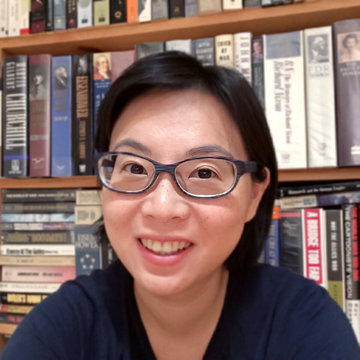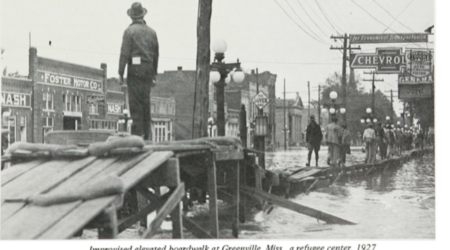Established in 2021, the Dr. Iris Hui Memorial Graduate Student Scholarship honors the vision and goals of Dr. Iris Hui, a PhD graduate of Political Science from UC Berkeley. Family and friends raised funding for this memorial scholarship in Dr. Hui’s name to support researchers and students tackling issues that meant so much to her — urgent, real-world problems facing all of us, including the governance of natural resources, climate change, political empowerment, and migration. As a former graduate student herself, Dr. Hui understood how funding like this can benefit graduate students.
Social Science Matrix is honored to have been chosen as the institutional home for this memorial scholarship, which will be distributed to awarded graduate students each summer. Many people generously donated to establish this memorial scholarship, and we welcome further donations to be able to continue supporting graduate students for many more years into the future. Please contact Eva Seto for information about how to donate.
Past Winners
Irene Franco Rubio (2025)
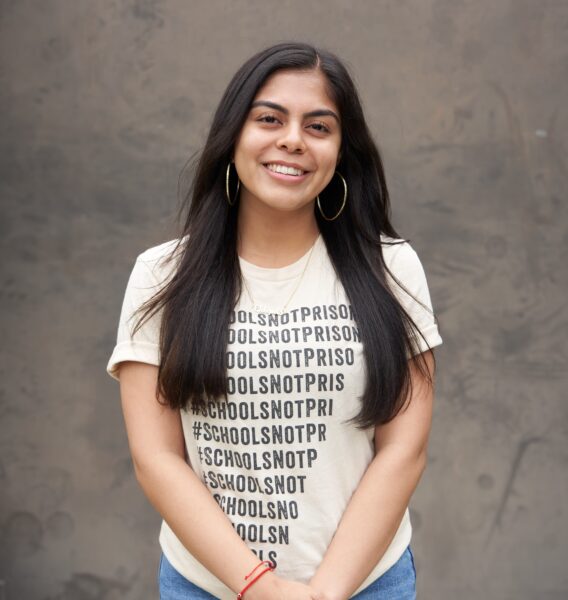
Irene Franco Rubio is a doctoral student in the Department of Ethnic Studies at UC Berkeley, pursuing Designated Emphases in Gender, Women, and Sexuality Studies and New Media. Born and raised in Phoenix, Arizona, she is a first-generation scholar-activist whose research explores multiracial coalition-building, grassroots resistance, and social movement histories in the U.S. Southwest. Her work is grounded in participatory methods and shaped by her ongoing community organizing, examining how cross-racial solidarity emerges in response to racialized, state-sanctioned violence. Irene’s scholarship bridges academic inquiry and movement-building, committed to uplifting directly impacted communities through collaborative, justice-oriented research.
Research Abstract
Forging Solidarity: Multiracial Coalition Building in Arizona’s Grassroots Resistance examines how Black, Latinx, and Indigenous communities in Arizona organize together in response to systemic violence and criminalization. Amid heightened anti-immigrant sentiment and racialized policing, grassroots organizations continue to form powerful cross-racial coalitions rooted in mutual care and collective action. This project draws from ethnographic fieldwork, oral histories, and participatory action research to document the strategies and stories of those directly impacted in Arizona. It explores how communities navigate tensions, sustain solidarity, and adapt to shifting political landscapes, raising broader questions about the conditions under which multiracial coalitions emerge, thrive, or dissolve. The project bridges academic research and community movement-building by collaboratively archiving these narratives. It offers a framework for understanding coalition-based resistance in the contemporary U.S. Southwest while preserving the lived experiences of frontline organizers. In alignment with Dr. Iris Hui’s vision, this research addresses urgent real-world challenges—from immigrant criminalization to the struggle for racial justice—and seeks to contribute to liberatory futures grounded in community resilience and solidarity.
Emma Bates (2024)
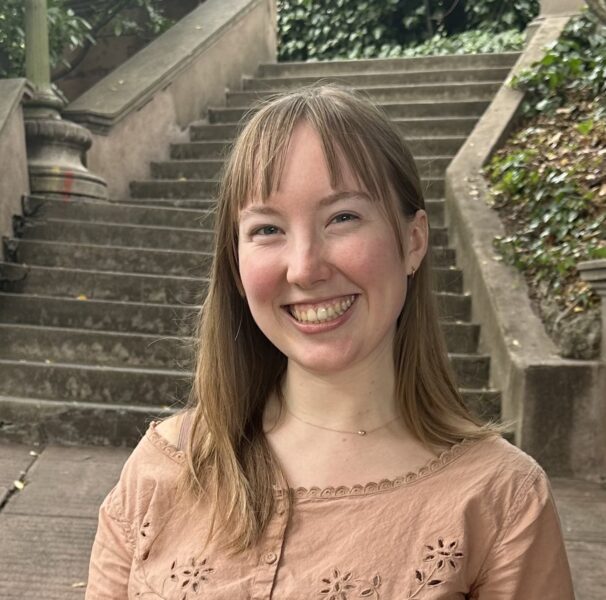
Emma Bates is a first-year PhD student in the History Department. She studies 20th-century American history, with particular focus on the power grid, publicly-owned utilities, and energy security. She is also in the Political Economy Designated Emphasis. She studied history as an undergraduate and obtained her BA with Honors from Stanford University in 2022. She has spent over five years as a research assistant working on numerous projects related to national and international security.
Research Abstract
President Roosevelt’s Rural Electrification Administration brought electricity to tens of millions of American families from the 1930s to the 1950s, completely reshaping the landscape of American power. Yet this undertaking bypassed Native American communities on reservations, resulting in substantial disparities in grid infrastructure access.
The present-day exclusion of Native communities from the grid has often been attributed to reservations’ rural geographies and their subsequent distance from existing transmission infrastructure. Yet this explanation does not adequately explain the scarcity of grid infrastructure projects on reservations in the prewar periods. My project investigates the exclusion of Native American reservations in the rural electrification projects in Washington State, which pioneered some of the first public power initiatives — and most Roosevelt-era electrification projects — in the American West.
Using archives situated across the state, this project will look at how American federal, state, and city governments, Native governments, and both publicly and privately owned utilities navigated this topic. It seeks to uncover how each of these entities navigated questions of sovereignty, responsibility, and power. The American grid today reflects the infrastructural choices of this period. An understanding of the inchoate grid is thus vital in explaining the energy security problems we face today.
Tanya Bertone (2024)

Tanya Bertone is PhD student in Anthropological Archaeology at UC Berkeley, with a designated emphasis in Global Metropolitan Studies. Her research explores housing development, displacement, and placemaking within the larger coastal California landscape. Her dissertation centers on a contemporary archaeological analysis of two mobile home parks, as well as the perspectives and lived realities of their residents. Tanya was a transfer student from Pasadena City College, earning her BA in Anthropology at UC Irvine and her MA in Anthropology at UC Berkeley.
Research Abstract
Mobile homes occupy a liminal space of vulnerability in a capitalist frame. Precarity of tenure (residents may not hold rights to the land under their homes) and designed obsolescence (through the use of less durable building materials and techniques) have played a key role in the exclusion of these spaces from an in depth archaeological analysis, which also serves as justification for it.
This project aims to better understand the lasting impacts of contemporary housing and development decisions on communities by asking challenging questions. How do different entities value the archaeological record and make use of it in shaping the present? What types of value is placed on heritage and how do these designations serve communities? Do mobile home parks trouble our notion of what qualifies as a historic landscape?
A contemporary archaeological analysis examines how mobile home parks have changed through time. Representing more than a unique affordable housing landscape, parks have fostered generations of often overlooked, tight-knit, resilient communities and identities. Recognizing them as archaeologically and historically significant underscores the importance of preserving not just buildings, but the social and political experiences of people negotiating life in these spaces and in the greater landscape of coastal California.
Soosun You (2023)
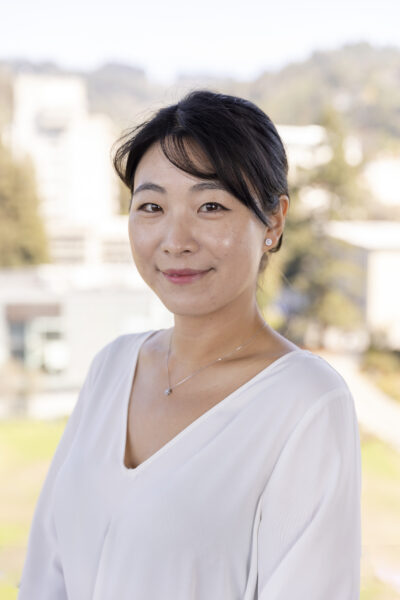
Soosun You is PhD candidate in Political Science at UC Berkeley. Her work focuses on addressing various challenges to achieving gender equality. For her dissertation, she is examining how changing norms, expectations, and policies around marriage has shaped support for and opposition against women’s empowerment in South Korea, and East Asia more broadly. Prior to pursuing her PhD, Soosun worked as a journalist in South Korea. Soosun holds a BA in Economics and an MA in Political Science from UC Berkeley, and a Master of Public Policy from Seoul National University.
Research Abstract
My dissertation looks at the role of the marriage market dynamics in shaping gender backlash in South Korea. Specifically, I argue that the marriage market squeeze, where there is an excess of men over women seeking partners for marriage, has engendered gender backlash against women’s empowerment. In examining the relationship between the marriage market squeeze and gender backlash, I examine the following mechanisms: status and economic insurance. Marriage is often regarded as a symbol of status – if one does not marry, it can incur reputational costs for the individual and their families, and these reputational costs are likely higher for men (and their parents) who are expected to continue the family line. Second, marriage may be perceived as economic insurance for the elderly. In an increasingly economically insecure environment, the older generation of men and women are also likely to perceive an economic threat in response to the breakdown of the traditional family model. I test my hypotheses using a combination of qualitative and quantitative methods, including survey experiments, semi-structured interviews with elites and citizens, and a quasi-natural experiment.
Joseph Greenbaum (2022)

Joseph Greenbaum’s dissertation work explores resource governance and greenwashing of global supply chains around recycling and electronic waste. He researches land transformations, non-state resource governance, and the global and local logistics of recycling. He received an MA in International Relations from the University of Chicago and a B.S. from Northwestern University.
Research Abstract
Over fifty-million tons of electronic waste are dumped annually. Though East African countries produce very little electronic waste compared to the Global North, East African nations bear some of the highest environmental costs of the global e-waste trade. This project asks how pollution from electronic waste ends up across East Africa with different intensities, who moves waste, and what consequences the toxicity from electronic waste mining has on agriculture and displacement. Using a blend of qualitative and quantitative methods, this work explores both the micropolitics of contamination and extraction in East African communities, and the broader international political economy of regulatory arbitrage and transnational entanglements.
Electronic waste (e-Waste) contains precious metals that can be harvested. Unlike gold and other mineral mining that occurs vertically, in spatially fixed sites prefigured by the position of mineral endowments, e-waste is mobile and is carried thousands of miles. Transnational mining firms are adding smelting of these metal-bearing wastes into their mining repertoires alongside traditional vertical extraction. Many of these smelting sites have begun to populate the Global South skirting regulatory gaps, which increases challenges to governing extractive industries and entrenches North-South inequalities. This work maps these sites out and elaborates emerging forms of extraction.
Gisselle Pérez León (2022)

Gisselle Pérez León is a PhD candidate in the Department of History. She is a first-generation college graduate and a member of Prep for Prep’s Contingent XXVII. Her dissertation research focuses on race, gender, and urbanization along the U.S.-Mexico border. The project looks at the development of municipal services (waterworks, electricity, and education) in Nogales, Sonora from the point of view of small business owners, tribal members, migrants, and working-class residents. Prior to graduate school, she served as Paralegal for the American Civil Liberties Union’s (ACLU) Racial Justice Program and the New York Legal Assistance Group’s (NYLAG) Tenants’ Rights Union.
Research Abstract
Nogales’ rise as a major port of entry in the early twentieth century opened commercial opportunities not only to U.S. investors, but also to Mexican women, Chinese merchants, and other immigrant local-business owners who benefited from cross-border traffic. This project aims to understand what the creation of a commercial hub on a newly established border meant for the people who lived there. How did large-scale trade opportunities change city space and infrastructure? Who held claims to public space and municipal services? How does an urban studies approach change our understanding of the multi-racial U.S.-Mexico borderlands? Gisselle traces the development of public services and municipal governance between 1918, when the first physical boundary divided the border cities, and 1965, when investments from the Mexican National Border Program (PRONAF) and the binational Border Industrialization Program rebuilt the Nogales gateway. Once the border physically divided “Ambos Nogales,” city officials gradually restricted access to space, services, and commerce for individuals excluded from post-revolutionary ideas of urban modernity. Using municipal and state archives, Gisselle explores how working women, Chinese business owners, Indigenous Tohono O’odham, and Native Yaqui asserted rights to waterworks, electricity, and education in a changing border city.
